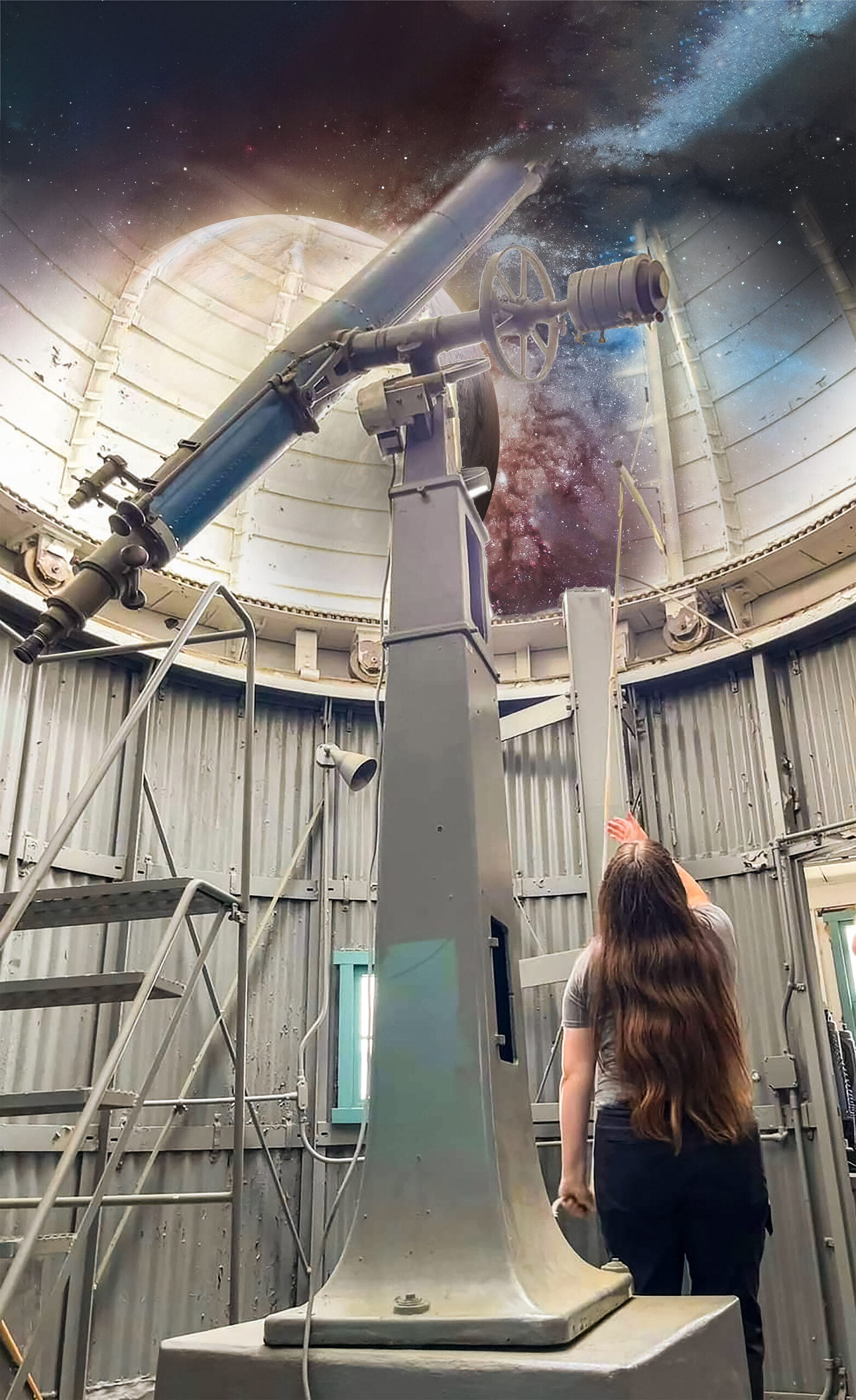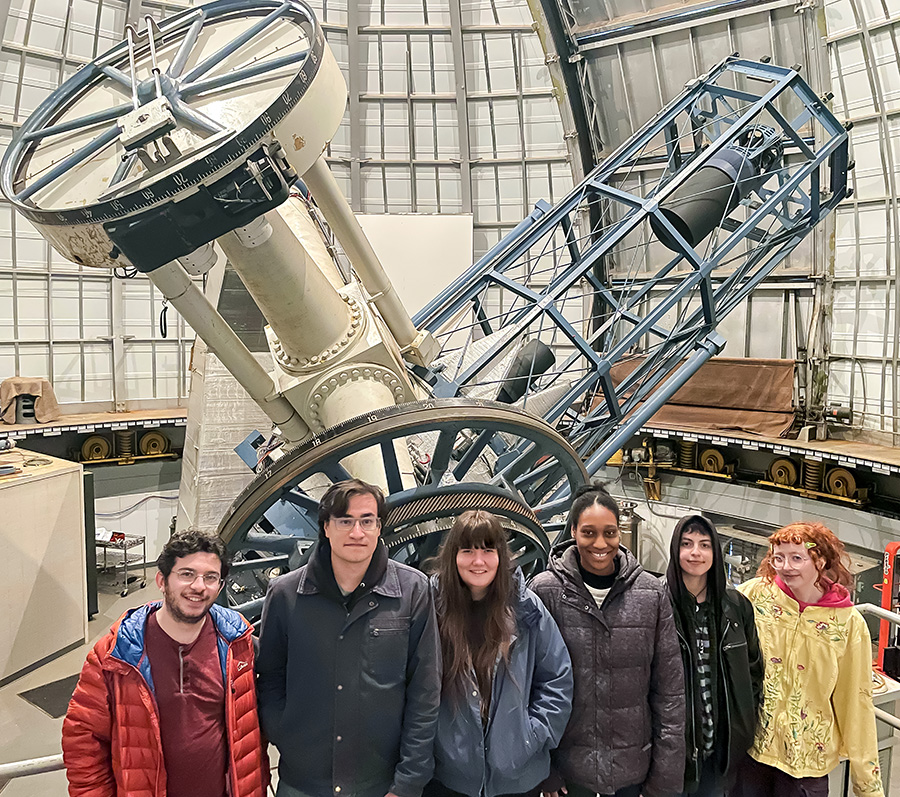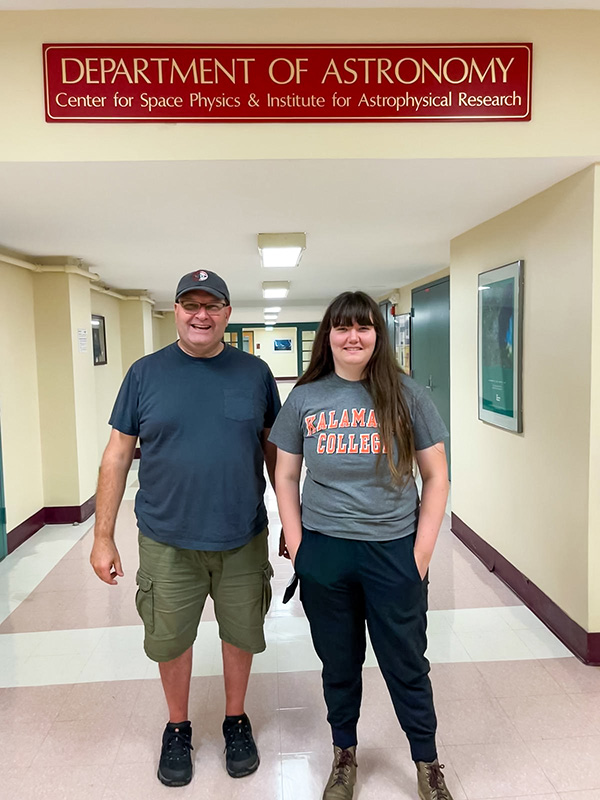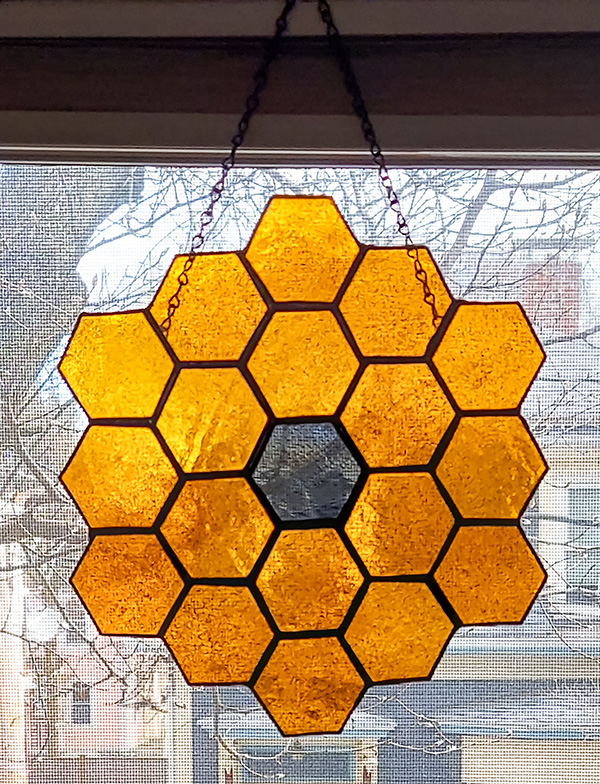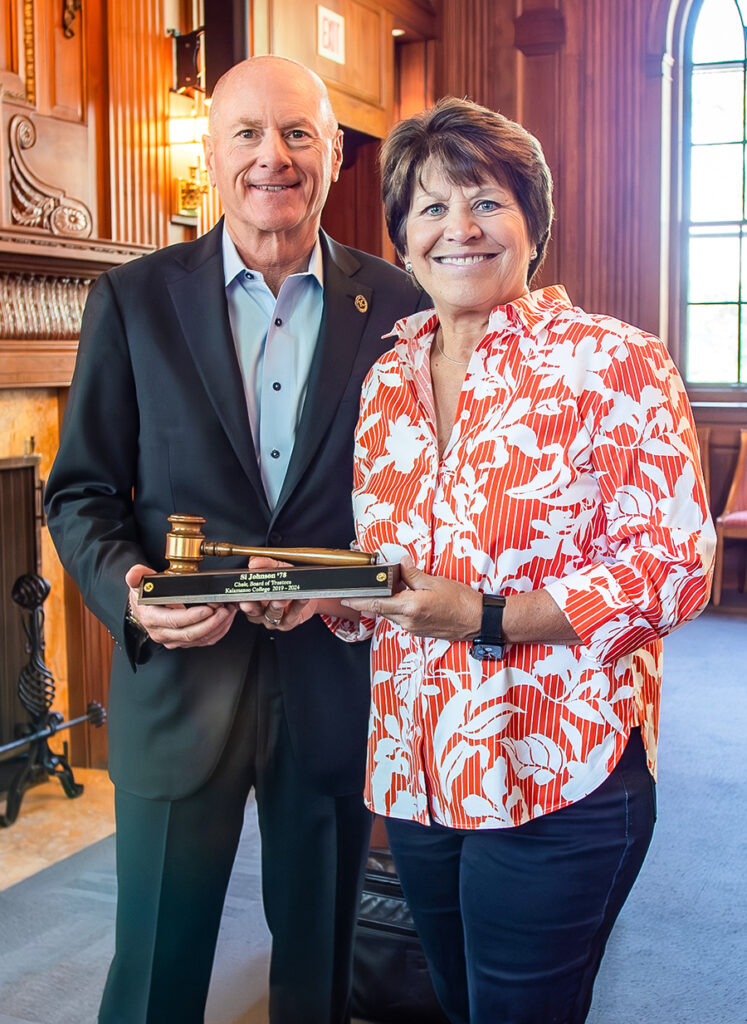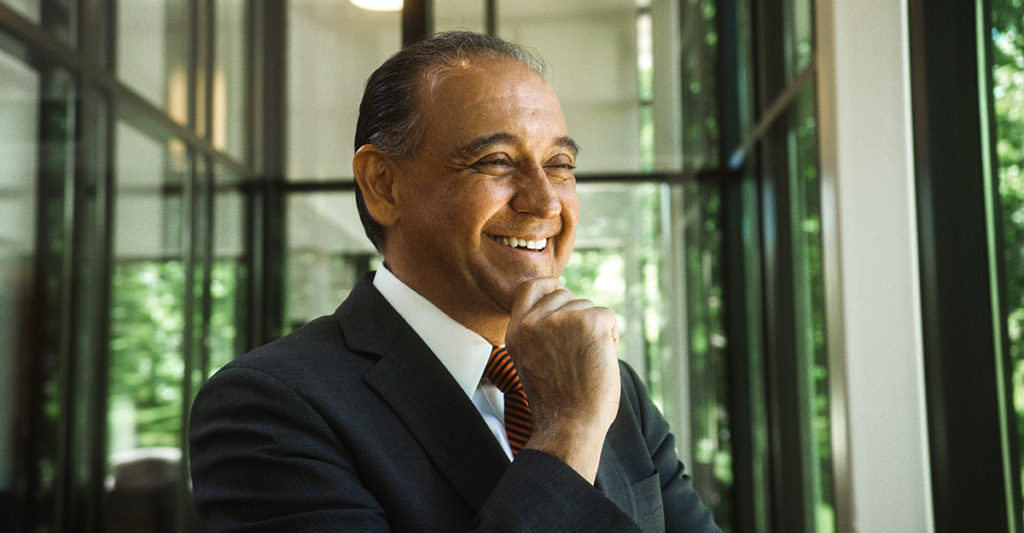
In 2016, Aaron Elstein ’91 was hung up on during a phone call with one of the most famous people in the country: Donald Trump. Elstein was interviewing Trump for a story on how the business tycoon had qualified for a tax break meant for middle-class New Yorkers.
“He got very defensive,” said Elstein, a senior reporter at Crain’s New York Business. “Before he hung up on me, he said, ‘Take care of yourself.’”
The story that followed ran in Crain’s and was featured on New York Public Radio’s The Brian Lehrer Show. Shortly after, Trump asked the city to stop giving him the tax credit in question, Elstein later reported.
That phone call with the former president, whom Elstein had also interviewed back in the 1990s when Trump tried to acquire control of the Empire State Building, is just one of the many stories Elstein has written in his nearly three decades as a journalist. Originally from Okemos, Michigan, Elstein’s reporting has taken him from a local paper in Springfield, Illinois, to Wall Street, covering everything from bank mergers to the stock market to real estate. Along the way, his articles, columns and blogs have won numerous awards, including from the Society of American Business Editors and Writers, the Society of Professional Journalists, the Alliance of Area Business Publications and the Jesse H. Neal National Business Journalism Award.
The same year Elstein was grilling a presidential candidate on his taxes, I was graduating from K, excited to pursue a career in journalism. I reached out to Elstein, eager to connect with a fellow K alum who knew the ins and the outs of the industry. Little did I know that grabbing that coffee with the Crain’s reporter in a small cafe near Times Square would lead me to pursue a master’s in journalism, intern at CNBC and Bloomberg News, and write for a wide range of business and finance publications. It’s thanks to that K connection that I met Elstein’s former editor—the director of the business and economics reporting program at what would become my graduate school—and got real insight into what it meant to be a business journalist covering a constantly evolving landscape.
“I’ve been doing this for 30 years, and I’m not bored,” Elstein told me when I reconnected with him recently—a sentiment he was echoing from our first conversation in Manhattan nearly seven years ago. “That’s what you need with any job.”
What about your time at K stands out to you?

I started in the fall of ’87. I took a couple of history classes and really liked them, so I decided I was going to be a history major. My favorite professors were Dr. David Barclay—I can still hear his voice ringing in my ears lo these many years; Dr. David Strauss, who was the American history professor; and Dr. John Wikstrom, the medieval history professor at the time. I went to Madrid for foreign study, and that was a tremendous experience. I knew I wanted to go back to Spain if I could find a way to do that, so I did for my SIP (Senior Integrated Project). I wrote about the medieval pilgrimage road in northern Spain, the Camino de Santiago, which has since become a big pop culture thing (they made a movie, The Way, about it with Martin Sheen). My only regret is I didn’t write a book based on my SIP because it didn’t occur to me to do that.
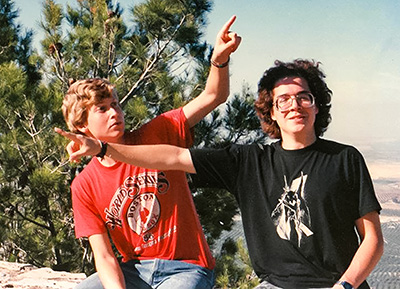
How did you go from being a K senior in Spain working on your SIP to reporting on real estate in New York City?
A few years after I graduated, I got a master’s degree in journalism from the University of Illinois and that was the start of my career. I started with a newspaper in Springfield, Illinois, called Illinois Times where I learned a lot about downstate Illinois graft and corruption. After a year and a half in Springfield I didn’t care for Springfield, so I moved to New York City. I was looking through classified ads as one did back then and there was a help wanted ad for a paper called American Banker, a daily trade newspaper downtown. They put me on the mergers and acquisitions beat, which, it turned out, is basically listening to investment bankers gossip about deals they didn’t get. I got a scoop and The Wall Street Journal was very interested in stories like that, so I ended up getting a job there. The good thing about working at the Journal was that everyone would return your call, but the bad part was that they would have like 20 people covering four or five stories, so it was a constant battle for credit and attention. Eventually, I was laid off with others. A friend of mine was at Crain’s, and they had an opening. I started working there in April of 2003, and I’ve been there ever since.
What have you written about over the years at Crain’s?
I started out as a Wall Street reporter writing about Merrill Lynch, Lehman Brothers and Bear Stearns—those kinds of places. That prepared me very nicely for 2008, since I knew who all these places were before they blew up (during the 2007–08 financial crisis). I covered the aftermath of that until it started to get boring. I told Crain’s I wanted to be a features writer so I spent years writing magazine-length features about things like why diners are Greek, how scaffolds in the streets of New York are everywhere and ugly and never go away, and why New York water makes really great pizza (or, as it turns out actually, has nothing to do with great pizza). It was a lot of fun. Then they asked me to get on the real estate beat after the pandemic hit and upended office life and work life. So that’s what I’m doing now.
You’ve covered a lot. Has journalism changed over the years?
Yes. But in some ways, less than everybody thinks. People get very excited about the delivery mechanisms of news, like “oh, it’s digital now and it was print before.” Yes, that is true. But I can tell you that my job has not really changed that much. The work that goes into producing a story—however you receive it as the reader—isn’t really that different. What you have now that’s different is what I call “digital thirst.” Editors want a constant barrage of stories and a constantly refreshed website because that’s frankly the one thing they can control: quantity. Quality is harder to control. Is that the correct thinking? I’m not sure, because I don’t see the economics of the business really improving that much.
Aside from the struggles that come with keeping up with the “digital thirst,” what challenges do you face as a journalist?
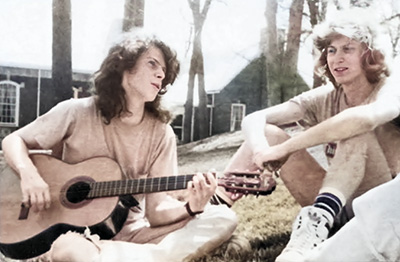
There’s always lots of competition. The challenge is to keep yourself interested, to not feel overwhelmed and to try to find things that interest you that interest other people as well. One of the things that’s difficult about media is how monoculture it’s gotten. If you really think about what’s happened in the last 20 years with the internet, the number of different outlets that people have for news has really shrunk. People used to have their local newspaper, their local radio and then they would watch the evening news for the national story. And now if you look at what people are doing, they’re not reading the newspaper and they’re not watching the local evening news very much. But they’re getting stories basically from MSNBC, CNN, Fox News and maybe things like The New York Times or Bloomberg. And people are exposed to this stuff constantly because it’s on their phones all the time. So presenting people with something else is hard to do because they’ve got so much of it already—some of which they’re paying for, most of which they’re not. Asking people to pay to read something is a hard proposition. That’s why you’re seeing what’s happening to the media, and everybody wrings their hands and talks about how terrible it is. But the truth is, this is a mass choice made by society and it will take some time to disentangle this problem—and it’s in everybody’s interest that we do that. Everybody seems to agree that more voices are better than fewer, but we have many fewer voices in the media now than we used to. You can see the results.
Still, you’ve had a long career writing about things that interest you. Which stories stick out to you the most?
One of my favorite stories was about mail chutes—those drop slots in buildings, especially older ones. It turns out these things get clogged all the time. So I found a building where there was a clog and they were gonna open it and I got permission to go in there and see what they unearthed. They found about a dozen letters, some of them quite old. And I said, “Can I have these? I want to contact the people who sent them and tell them their letter didn’t get to where they were going.” That turned into a fantastic story about mail chutes, how they were the latest technology back in the day and how they’ve survived. I also really like my story about why diners are Greek because I always wondered why and I found the answer… It is a cultural story in addition to being a business story, and those are the ones I like. I detailed how Greek immigrant John Vassilaros began selling coffee to restaurants in 1918 and went on to help fund countless diners run by Greek restaurateurs as aging Irish, Italian and Jewish owners were ready to sell their joints. I got to profile a ton of NYC diner owners and dissect the pop cultural relevance of this particular type of restaurant—think Seinfeld and the famous conversation between John Travolta and Samuel L. Jackson’s characters in Pulp Fiction.
What would you say to a young person, like a K student, who wants to be a journalist?
I would say absolutely do it. We need you. When I started doing this, there were as many reporters in New York City as there were publicists. Now, there are half as many reporters and twice as many publicists. We need everybody who wants to tell some truth and tell stories that would be of interest and importance to the readers. I wouldn’t be scared about the economics of this business. They have been bad since I got here, and it can be done. Understand and accept that very few people start at the top of this profession. In fact, those who do tend not to last very long. Get whatever job you can anywhere, write some good clips and you will have a chance.
Mallika Mitra ’16 is a Chicago-based writer and editor. At K, she majored in English with an emphasis on creative nonfiction before attending the Craig Newmark Graduate School of Journalism, where she studied business and economics reporting and was a McGraw Scholar. Mitra’s work has been featured in CNBC, Bloomberg News, The Wall Street Journal’s Buy Side, Business Insider, Money Magazine and more. Her essays can be found in literary magazines such as Entropy and Punctuate, and she co-writes the newsletter Yes, We’re Still Watching about TV past and present.


